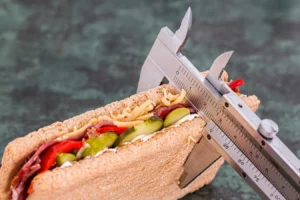A balanced diet requires a nutrient intake that meets the needs of each person to maintain health and must cover the body’s energy demands, according to the Clínica Universidad de Navarra (CUN) in Spain.
“A healthy diet helps protect us from malnutrition and non-communicable diseases such as diabetes, heart disease, stroke and cancer,” according to the World Health Organization (WHO).
To be healthy and correct, a person’s diet or eating pattern must meet six basic characteristics: be complete, balanced, safe, sufficient, varied, and adequate, according to Dr. Fabiola Mabel Del Razo Olvera, of the Metabolic Diseases Research Unit (UIEM), in Mexico.
This diet must contain all nutrients, including foods from the three groups (vegetables and fruits; cereals and tubers; legumes and foods of animal origin) and these nutrients must be in the appropriate proportions between them, without excesses or deficiencies of any of them, according to Del Razo.
Furthermore, regular consumption should not involve health risks and should be free of harmful substances; it should cover the nutritional needs of the individual according to their age group and characteristics; and include different foods from the three groups in each main meal, explains this specialist.
Del Razo also believes that food must be in line with the culture and tastes of those who consume it.
The seventh requirement
To meet the above conditions, another requirement must be taken into account, which is often neglected or does not receive the necessary attention, but which is decisive and whose absence can thwart the best intentions and plans to eat healthily: planning, warning other specialists.
“Planning is an essential component as it helps to avoid impulsive decisions, guarantees nutritional variety, saves time and money, reduces stress, and allows you to achieve long-term wellness goals,” says Noelia Suárez, communications director of Nutritienda.com (NT).
The experts at this online platform specializing in beauty, health, and nutrition offer some guidelines for eating healthily, with good planning and organization.
Establish eating routines.
It is advisable to eat at the same time every day, which helps regulate metabolism and reduces the need to eat unhealthy snacks between meals, adjusting schedules to daily activities, our internal biological rhythms (circadian rhythm), and what our body demands, leaving two or three hours between dinner and bedtime, according to Nutrition.
Organize your pantry
After removing expired or spoiled products, food should be organized by category (nuts, flour, pasta, condiments, canned goods, snacks, etc.), grouping them in transparent containers to see what is inside and with labels indicating their expiration date, and placing small products in baskets or hampers, they add.

Optimize your utensils
In addition to keeping them in order, to prepare meals in less time, with greater efficiency and satisfaction, it is advisable to invest in quality cooking appliances such as food processors, blenders, food processors, mixers, mandolins or cutters, as well as having well-sharpened knives and pans in optimal condition, advises NT.
Keep your recipes handy.
Collecting the recipes you have, classifying them by category (times of year or dates, such as Christmas or summer, preparation time, ingredients, or any useful information), making a list with an index, and keeping them organized in folders, notebooks, apps or online platforms, will help you plan your meals and your favorite dishes, according to NT.
Prepare a meal plan
“Designing a weekly or monthly menu will help avoid impulsive decisions and ensure that meals are balanced. This menu should include breakfast, lunch, snacks, and dinner. We often do not think about what we eat between meals, and during these periods we neglect our goal of eating a balanced and varied diet,” says Noelia Suárez.

Plan your purchases
Suárez recommends “making a list of the ingredients needed to prepare the meals included in the plan for the week or month, which reduces the risk of improvising and eating worse.” She also suggests taking the necessary time to shop, without rushing and having eaten a little beforehand, to avoid buying unhealthy products stimulated by hunger.
Prepare food in advance

Once you have prepared your menu for the next few days or weeks, you can get ahead with the work by preparing and cooking large quantities of food, organizing it into portions and freezing it, labeling it with its name and preparation date to ensure its freshness when the time comes to defrost and consume it, NT concludes.























+ There are no comments
Add yours